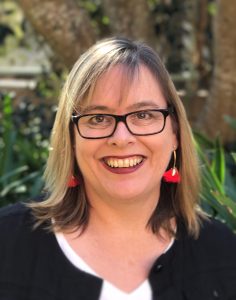Collaboration • Knowledge • Leadership
Collaboration • Knowledge • Leadership
Eating disorders and early intervention in a time of COVID
The mental health impacts of COVID-19 have been extensive and tangible. The impacts on those with eating disorders are no exception.
National Mental Health Commission data shows a 25 to 50 per cent increase in the number of people receiving treatment for eating disorders in the public health system during the pandemic.
For people with eating disorders, the increased burden on public and private service providers has meant long wait times and sometimes severe health consequences.
 “We've seen an increase in new diagnoses, particularly among young people,” says Belinda Caldwell, CEO of Eating Disorders Victoria (EDV) (pictured right). “But we've also seen people who had recovered, relapsing.
“We've seen an increase in new diagnoses, particularly among young people,” says Belinda Caldwell, CEO of Eating Disorders Victoria (EDV) (pictured right). “But we've also seen people who had recovered, relapsing.
“And we've seen more people being more unwell than usual. Partly that's because they're not getting into treatment in a timely way, so they're more unwell by the time they do.”
EDV is one organisation that has had to step up during this time. The organisation has nearly tripled in size over the past two years, largely to meet this surge in pandemic related demand.
Among a raft of new or expanded services, one stands out as being particularly pertinent. Carer Coaches was established for families of newly diagnosed young people who are on a waitlist for clinical treatment.
“We offer them coaching from carers who have lived experience of the treatment program they will be doing once they get accepted,” explains Belinda.
“We've had really good results,” she says. “Families are often well into the recovery journey before they even enter the treatment system.”
The long tail of the pandemic
COVID funding has seen EDV grow in other ways, notably by employing counsellors with lived experience of specific eating disorders and commencing disorder-specific support groups.
The funding may have been COVID specific, but the work is not. In particular, programs like Carer Coaches that focus on early intervention among young people will have ongoing relevance.
“We don't see demand slowing down at all,” says Belinda. “People can fall into an eating disorder relatively quickly, but it takes a lot longer to get back out of it.
“There will be a long tail on the end of this crisis. And we want to continue to be able to turn up for our community in this way.”
For EDV, the equation is simple: demand plus investment equals innovation and growth. That equation has been exemplified during the pandemic period, but shouldn’t be limited to it.
It enables organisations like EDV to meet the needs of more people in more effective ways.
“We’ve got to a stage now where we can scale up relatively efficiently,” says Caldwell. “We've got a critical mass of funding where with each increase, we can see more people for less money.
“We've always known we reach only about two or three per cent of the whole eating disorder affected community in Victoria,” says Caldwell. “We want that to be so much more.”
Originating in 1983, Eating Disorders Victoria is the largest Victorian not-for-profit organisation providing support services, information and guidance to people impacted by eating disorders. Belinda Caldwell joined EDV as CEO two years ago. She has worked in health and health change management for more than 30 years.
As part of our 22-point State Budget Submission, Mental Health Victoria has called on the Victorian Government to:
-
Provide funding certainty to Eating Disorders Victoria to enable community-based online and telehealth services for people affected by or at risk of eating disorders ($5 million), and
-
Fund the establishment of a dedicated youth eating disorder research function at Orygen
Related Articles

Get to know our CEO

Lived and living experience workforces now and into the future

The friends you need for unspeakable grief
MHV News
Receive all the latest MHV news plus key headlines, events and opportunities from across the sector.
Mental Health Victoria
Level 6, 136 Exhibition Street,
Melbourne VIC 3000
Contact us
+61 (3) 9519 7000
ABN: 79 174 342 927




Mental Health Victoria acknowledges the Aboriginal and Torres Strait Islander peoples as traditional custodians of the land on which it operates. We pay respect to Elders past and present and value the rich history, unbroken culture and ongoing connection of Aboriginal and Torres Strait Islander people to country.
Mental Health Victoria acknowledges those people touched directly and indirectly by mental health vulnerabilities, trauma, suicide and neurodiversity, and their families, kin, friends and carers. We acknowledge the ongoing contribution of those people in the mental health sector.
Mental Health Victoria values diversity. We advocate for a safe and inclusive society for all people, regardless of their ethnicity, faith, disability, sexuality, or gender identity, and uphold these values in all we do.
©
All rights reserved.
Website by Snaffle.

